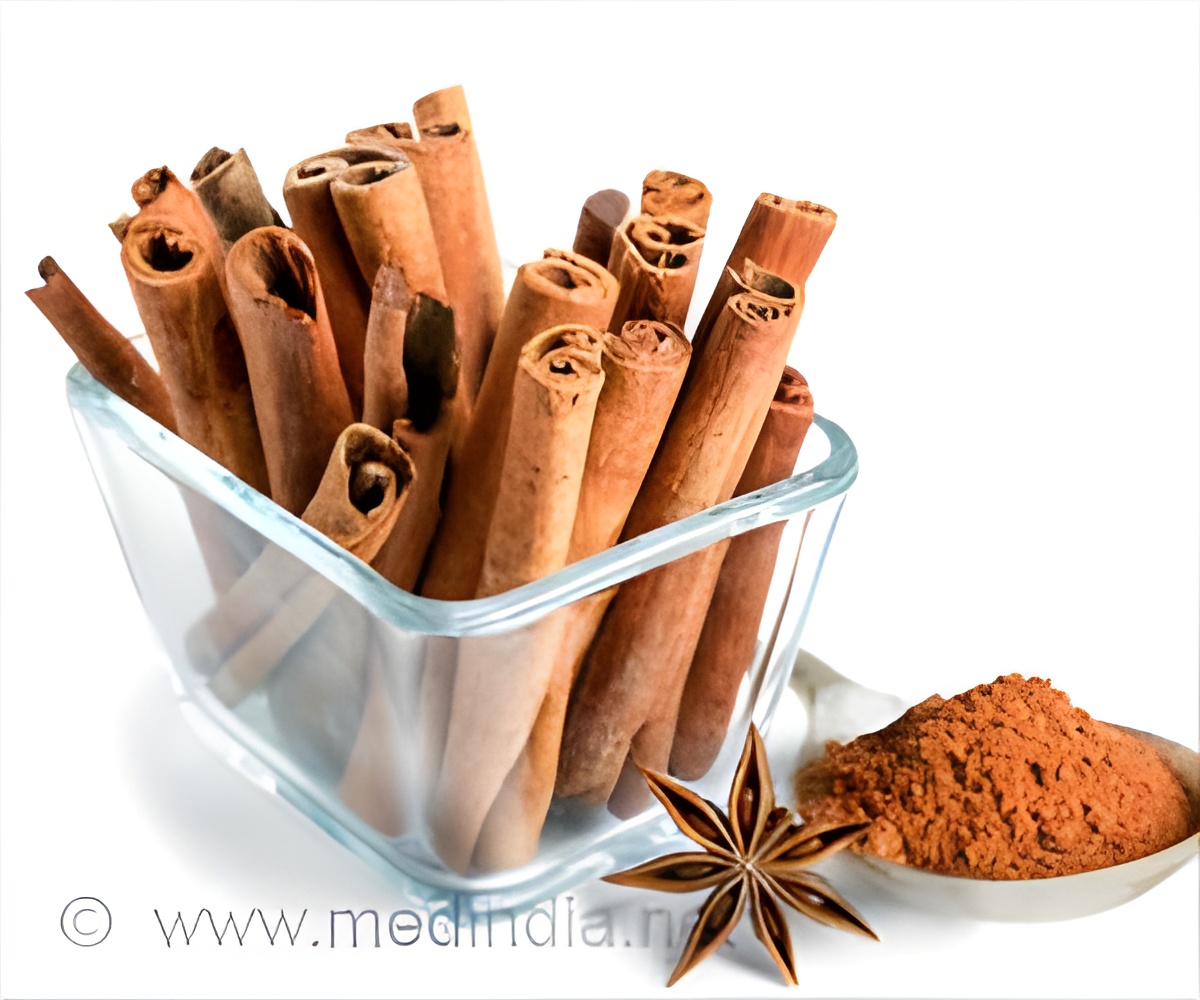A component of cinnamon oil called cinnamaldehyde can help fight chronic biofilm-mediated superbugs and develop alternatives to antibiotics.

‘Cinnamaldehyde present in cinnamon oil can help fight superbugs and develop alternatives to antibiotics.’





"Though many previous studies have reported antimicrobial activity of cinnamon essential oil, it is not widely used in the pharmaceutical industry," Topa said. "We aimed to search for the molecular activity of this oil, focusing on its major component, cinnamaldehyde. This is the compound that gives cinnamon its flavor."
There is an urgent need to develop alternatives to antibiotics to treat chronic biofilm-mediated infections, such as may occur with urinary catheters and artificial joints.
Rather than killing the bacteria, Topa looked to modify the behaviour of bacteria by disrupting bacterial communication to prevent biofilm formation.
"We hypothesised that using natural antimicrobials, such as essential oils, might interfere in biofilm formation. Thus, we focused on the impact of different concentrations of cinnamaldehyde in different biofilm development stages," she noted.
Advertisement
The results showed a sub-lethal concentration of cinnamaldehyde controlled the dispersion of Pseudomonas aeruginosa and the development of biofilm.
She is now investigating embedding cinnamaldehyde in nanofibres in wound dressings.
Source-IANS













